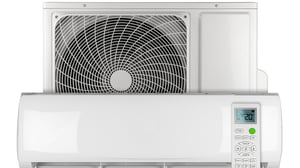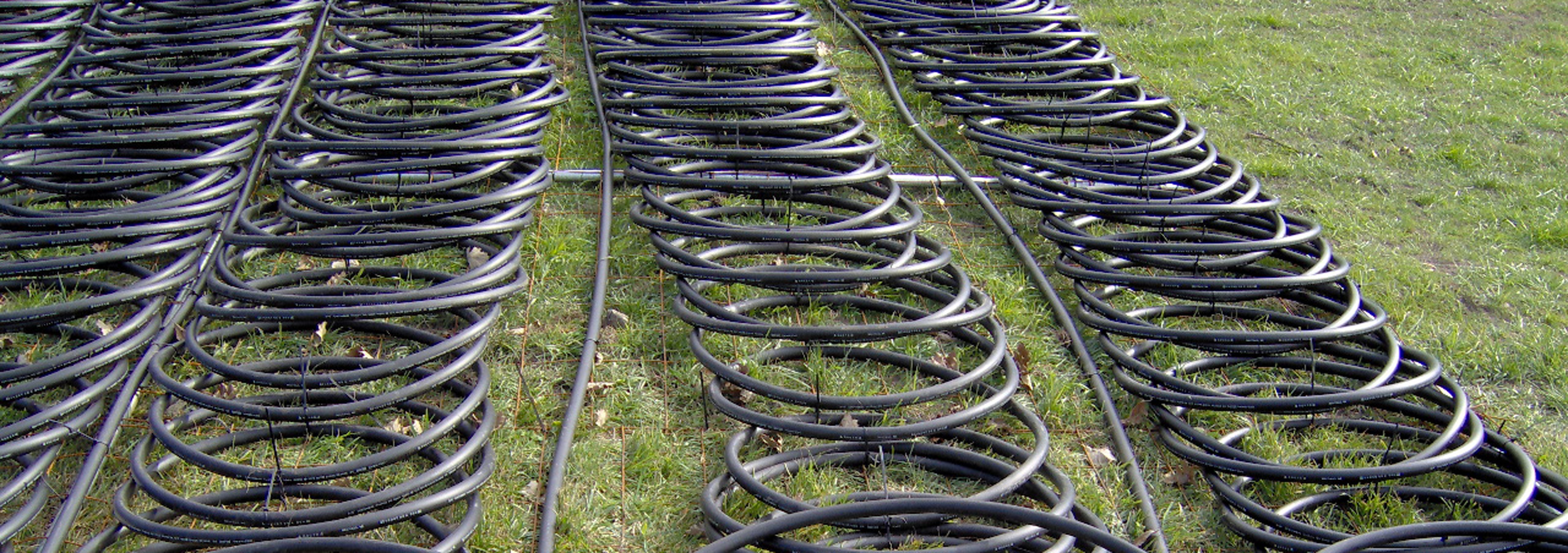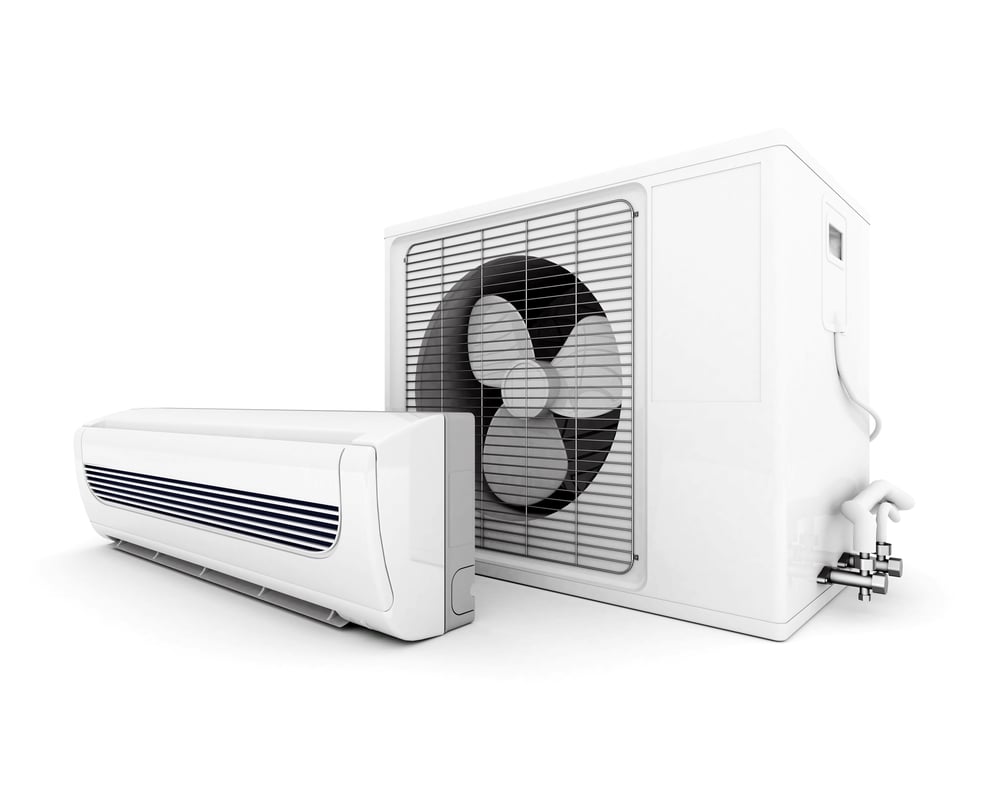With summer just around the corner, homeowners in Westchester are looking into maintaining, upgrading, or repairing their air conditioning systems. But where do you start? Selecting the right air conditioning system can seem like a daunting task. But with the right information from AC experts at A. Borrelli, you will be able to pick the right AC for your home and family.
Types of Air Conditioning Systems
Air Conditioners come in all shapes and sizes. Choosing the right one comes down to your budget, space, and needs.
Here are the most common types of AC systems:
Window Air Conditioners
One of the most common ways to cool your living spaces is through a window AC. These systems fit the window frame of your home and are used to primarily cool the room in which they are installed. The AC works by taking warm air from inside your home, running it over an evaporator coil to cool it, and then blowing it back into your house. The heat that is absorbed by the evaporating coil is condensed and pushed out of the house.
These are relatively easy to install, especially if you rent or live in an older apartment where this might be the only cooling option available. The AC comes in different sizes, depending on the size of your room. Be sure to read manufacturer instructions on space size before purchasing. Older models cool at the desired level until turned off, but many newer models cool up to a desired temperature and cycle on/off to maintain the temperature.
Ductless Split Air Conditioners
 Mini-splits are heating and cooling systems that allow you to control the temperatures in individual rooms or spaces. Also known as a ductless system, mini-splits have two main components - an outdoor compressor/condenser and an indoor air-handling unit. The outdoor and indoor units are linked through a hole in the fall for a conduit, which houses the power cable, refrigerant tubing, suction tubing, and a condensate drain.
Mini-splits are heating and cooling systems that allow you to control the temperatures in individual rooms or spaces. Also known as a ductless system, mini-splits have two main components - an outdoor compressor/condenser and an indoor air-handling unit. The outdoor and indoor units are linked through a hole in the fall for a conduit, which houses the power cable, refrigerant tubing, suction tubing, and a condensate drain.
Unlike traditional, ducted-type systems that can take several weeks to install, ductless systems are less invasive to your home and can be set up in as little as a day. They are perfect for homeowners with older houses that don’t have central air conditioning but don’t want to install window ACs. The hook-up between the outdoor and indoor units generally requires only a three-inch hole through a wall for the conduit. The outdoor compressor can be placed as far away as 50 feet in a more discreet place on the outside of your house or building.
Central Air Conditioner
The most common way to cool a home is with a central air conditioning system. The system consists of an outdoor unit with an external condenser and an internal evaporator coil that is attached to your furnace. The Central AC system works by using your furnace to draw warm air through the home’s duct system. This air is blown across the evaporator coil which cools it down and pushed this cooled air back through the duct system. The heat that is absorbed is then pumped to the condenser outside your house.
Although Central AC systems can be expensive and can take days to weeks to install, they help cool down your entire home, not just select rooms.
Geothermal System (Heat Pump)
Ductless Mini Split and Central AC systems also come in a variation of a traditional system known as a ‘heat pump’. Even though the temperature in the air changes frequently, the temperature underground remains relatively constant. Geothermal heat pumps use that to their advantage. They can pump underground heat into buildings, heating your home with a fraction of the energy needed by an air-based system. During the summer, the heat pumps can reverse that process and pump the heat from your home back into the ground, cooling your building.
According to the U.S. Environmental Protection Agency, geothermal systems save homeowners 30-70 percent in heating costs, and 20-50 percent in cooling costs, compared to conventional systems.

How To Pick The Right Size AC For Your House
When homeowners think about air conditioners, they either ignore size and cooling power or think that bigger is better. That is not true. Bigger isn’t always better and too small can be bad as well.
An AC that is too small won't have enough power to cool your home on a hot day. It will run forever and your electric bill will shoot up from the nonstop use.
An air conditioner that's too big will cool too quickly. Here's why you want to avoid this.
- An oversized AC will often cycle off before cool air can even reach rooms further away.
- An AC's second job is to remove humidity, and it needs to run for a while to accomplish this. If it always quickly cycles off, the inside of your home will feel damp and uncomfortable.
- An AC that constantly turns on and off will wear out faster and need to be replaced sooner.
How to figure out which size Air Conditioner best fits your cooling needs:
- Determine the square footage of the area be cooled.
- Use the chart below to determine the correct cooling capacity, which is measured in British thermal units (BTUs) per hour.
(Source: Energy Star)Area To Be Cooled (sq ft) Capacity Needed (BTUs/ hour) 100 up to 150 5,000 150 up to 250 6,000 250 up to 300 7,000 300 up to 350 8,000 350 up to 400 9,000 400 up to 450 10,000 450 up to 550 12,000 550 up to 700 14,000 700 up to 1,000 18,000 1,000 up to 1,200 21,000 1,200 up to 1,400 23,000 1,400 up to 1,500 24,000 1,500 up to 2,000 30,000 2,000 up to 2,500 34,000 - Make any adjustments based on the following circumstances:
-
- If the room gets a lot of sunlight, increase the cooling capacity by 10 percent.
- If it's heavily shaded, reduce the cooling capacity by 10 percent.
- If the AC will be used in the kitchen, increase cooling capacity by 4,000 BTUs.
- If more than two people will regularly occupy the room, add 600 BTUs for each additional person.
Air Filters
Air filters play an important role in the heating and cooling system. When your air filter is obstructed, airflow is reduced, causing your HVAC unit to work even harder than usual. This can increase your energy bills and potentially shorten the life of your unit.
Clean air filters are also beneficial to the overall indoor air quality. The air cycling through your ducts is the same air that you and your family breathe. Over time, pollutants such as mold, bacteria, and dust could build up and stay hidden within your air ducts, affecting your air quality. Getting your air ducts professionally cleaned reduces allergens and irritants, and promotes healthier living.
It’s recommended that you change your filter every 30-60 days for optimal air quality.
Choosing the Right Air Filter
Just about every hardware store sells filters which vary from a few dollars to $10-$30 depending on quality. Ask your HVAC technician for a recommendation for brands that will work best with your HVAC system.
When selecting the right air filter for your home, you want to take into account the filter’s minimum efficiency reporting value (MERV) rating. This is a score between 1 and 20 and indicates the air filter’s ability to capture and remove airborne particles while air is flowing through your cooling system. A higher MERV score means that the air filter will catch the smallest of particles better.
Some of the most common types of residential air filters include:
- Fiberglass filter - This is the most common throwaway air filter. It’s also the most economical option but only captures up to 20% of pollutants. MERV scores of fiberglass filters range from 3 to 10.
- High-efficiency particulate arrestance (HEPA) filters - These are considered to be the most effective residential air filters and can filter 99.97 percent of all particles.
- Polyester and pleated filters - These filters are similar to fiberglass filters, but tend to capture between 70-90% of the dust and pollutants in your home.
Non-disposable filters also exist that can be washed. They can be used for five to ten years. We recommend removing and rinsing them a month and letting them dry before putting them back in.
Key to a Long Lasting Cooling System: Maintenance
Preventative maintenance is key to a healthy HVAC system, and a comfortable, happy indoor environment. Here are three reasons you'll want to be sure to schedule regular service in your home or business:
- Save Energy - With the rising costs of energy, an HVAC unit running at peak efficiency can save you hundreds, if not thousands of dollars each year in gas and electricity bills. Using less energy is good for the environment, too. During check-ups, your certified technician will test, check, clean, and inspect various components to ensure safe and proper functioning at maximum performance.
- Avoid Unnecessary Repairs – Regular maintenance checks can find minor problems before they become major ones. Qualified A. Borrelli technicians can suggest critical areas for maintenance long before those components are in danger of breaking down. Take care of multiple issues at once, and you'll have fewer visits from technicians disrupting your busy schedule or vacation.
- Extend the Life of your Units – HVAC units are complex machines with many components. If one part is failing, it can place a strain on all the other parts, leading to greater wear and tear on otherwise healthy components. Your unit will last longer if you replace the worn-out parts as soon as possible. Well maintained units can last up to 15 years.
---
HVAC systems require regular maintenance and upkeep. But even if you properly maintain your system, there are still instances where you have an emergency situation. Because of this, A. Borrelli mechanical offers a 24/7 Emergency Service. If you are experiencing an issue that constitutes an emergency, turn off your system immediately and call us at 914.301.7495.
Schedule Your Virtual Consultation Today
If you are ready to assess your home's cooling system and lower your monthly energy bill, A. Borrelli Mechanical is here to help you find a solution. Contact us to schedule your virtual consultation with one of our trained and licensed professionals today.













